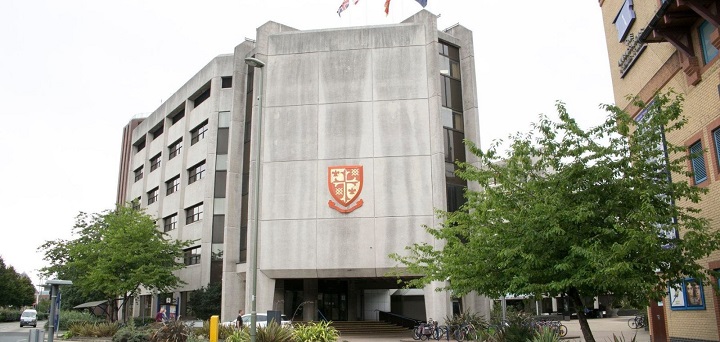Woking Borough Council is looking to pause the rollout of a £492m regeneration project due to looming £1.9bn borrowing debt.
At a press conference, Ann-Marie Barker, Woking’s leader, stated that as a result of the authority’s borrowing debt – which is anticipated to rise to £2.4bn by 2025/26 – the council will be looking at pausing the regeneration project of the Sheerwater housing stock.

This comes as Woking Borough Council was placed under government intervention on 25 May following the publication of an External Assurance Review, which made clear the scale of the financial and commercial risks facing Woking.
Barker told Room151: “In regard to Sheerwater, we are looking to pause the rollout there. Sheerwater is being delivered by council-owned company ThamesWey.
“We clearly can’t go on borrowing and giving the money to ThamesWey to continue that development as we’ve done in the past. So, what we’re looking to do is to see if there is anybody else we can bring in to support us and carry on that project.
“But, we would like to complete that project and deliver the new residential and community area in Sheerwater.”
The Sheerwater Regeneration Project was given the green light in April 2019 and aimed at delivering 1,142 high-quality homes and a new leisure centre.
15th Annual LATIF & FDs’ Summit – 19 September 2023
250+ Delegates from Local Government & Investment
£314m debt from project
When first proposed by the council, the Sheerwater Regeneration Project was expected to cost a total of £372m. The project was to be financed through the sale of properties and total borrowing by the authority of £129m.
However, a report published in February 2020 outlined that the project was forecast to cost £492m. It also detailed that the council is to take out three loans from 2021 to 2024 to fund the project, with total debt amounting to £314m by 30 September 2024.
The External Assurance Review outlined that the regeneration scheme of both Victoria Place and the Sheerwater housing stock account for the majority of the council’s debt.
“The two largest commercial schemes in Woking Borough Council’s portfolio are undoubtedly the regeneration of Victoria Place in the town centre and the regeneration of Sheerwater housing stock and public realm facilities,” the report stated.
“These two schemes alone have accounted for the majority of the current £1.9bn debt level. As a result of the complexities of the loan facilities this debt level is predicted to rise to £2.4bn within the next two years.”
Barker highlighted that because the Victoria Place regeneration project is now complete, no changes will be made. However, she stated that the “issue of borrowing” remains, and the council is hoping to work with commissioners “on a way forward”.
This comes as last week Woking Borough Council reported that it faced a £490m write-down of its assets after the council-owned company carrying out the regeneration of Victoria Square suffered “devastating” financial losses.
Asset disposal ‘not a good idea’
At the press conference, Barker also told Room151 that Woking Borough Council is not looking at an asset disposal programme to try to deal with its rising debt.
“Disposing of our assets would not be a good idea for Woking and it would just put us in a worse situation,” Barker said. “What we are doing is developing a strategic asset plan, so we are looking at what we can best do with our assets.
“But there are assets out there that we over-paid for. There was a programme with the previous administration whereby the chief executive officer had an opportunities budget where they could sometimes buy property without valuation. This has left us with overvalued properties, and we will be taking a clear strategic look at the best way forward on those.”
Asset disposal programmes are currently being implemented at other councils under government intervention, such as Slough Borough Council. In March, Slough reported that it has managed to “virtually halve” it’s £406m outstanding temporary borrowing through its asset disposal programme.
Barker’s sentiment was echoed by Julie Fisher, chief executive of Woking Borough Council, who highlighted that the External Assurance Review stated that Woking needed a “sustainable strategic plan” regarding its assets and that “selling those assets would not be appropriate or the right thing to do for the public purse”.
—————
FREE weekly newsletters
Subscribe to Room151 Newsletters
Follow us on LinkedIn
Follow us here
Monthly Online Treasury Briefing
Sign up here with a .gov.uk email address
Room151 Webinars
Visit the Room151 channel














